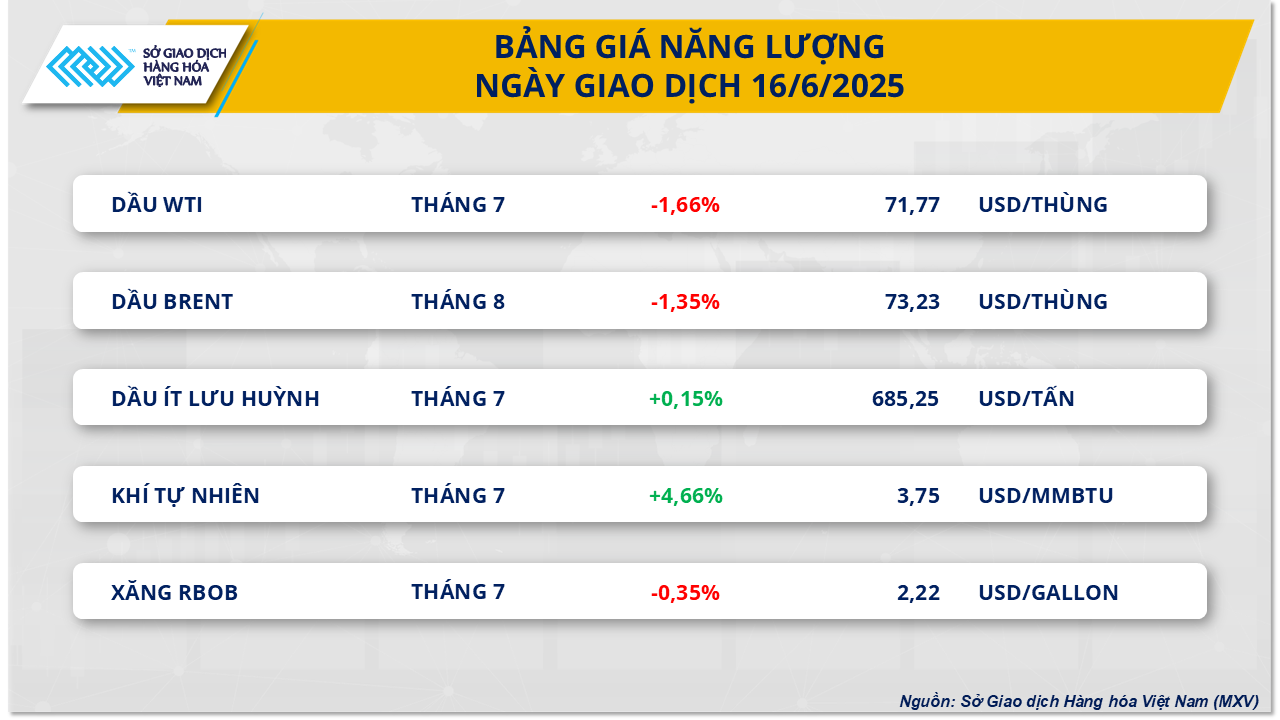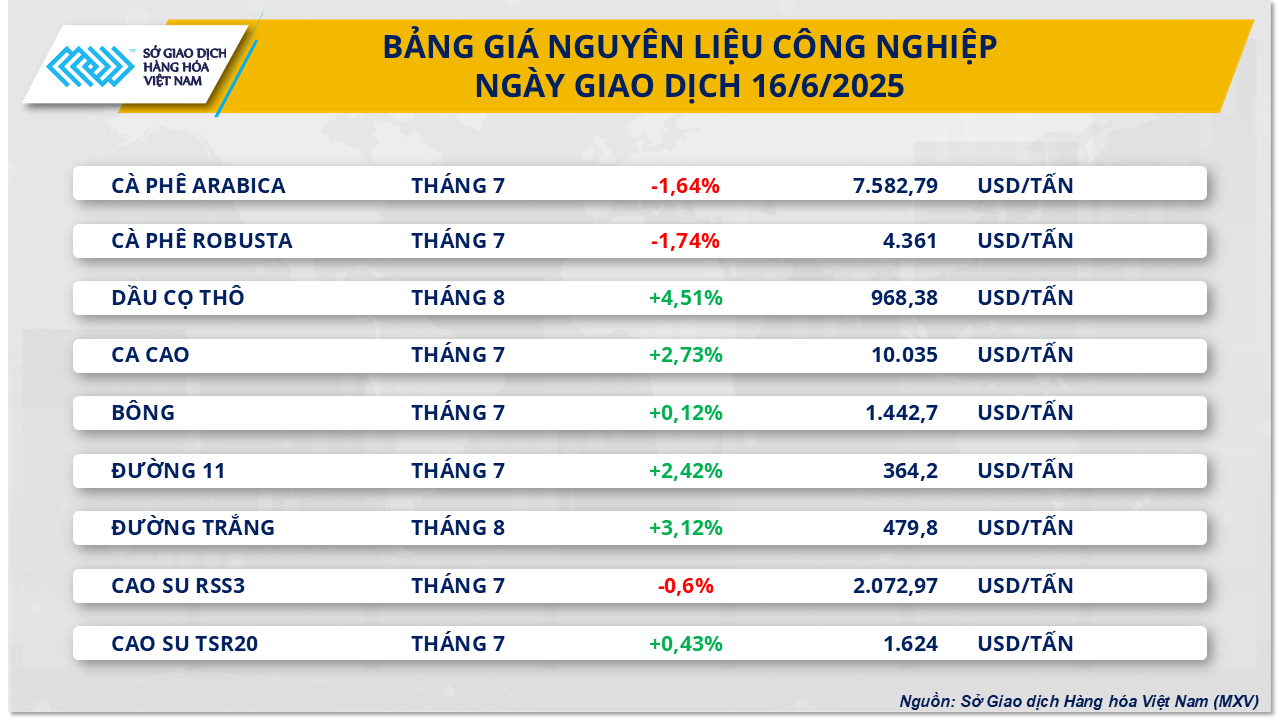Closing yesterday's trading session, the MXV-Index increased by more than 0.3% to 2,276 points.
Energy commodity markets weaken. Source: MXV
According to MXV, the increase in oil prices since the end of last week stopped in yesterday's trading session, after the first signs of cooling down in tensions between Israel and Iran appeared.
At the end of the session, Brent oil price fell 1.35% to 73.23 USD/barrel, while WTI oil also lost 1.66%, closing at 71.77 USD/barrel.
Iran has expressed its desire to move towards a truce with Israel, multiple international sources said yesterday. Iran is also ready to show flexibility in negotiations over its controversial nuclear program.
These diplomatic moves not only signal a cooling of Israel-Iran tensions, but also open up the possibility that the US and Iran could return to the negotiating table to reach a new agreement to replace the 2018 agreement.
Thereby, the possibility of Washington lifting sanctions against Iran will create conditions for Iranian crude oil to return to the international market, contributing to stabilizing global energy supplies.
Purchasing power dominates the market of industrial raw materials. Source: MXV
At the end of the first trading session of the week, buying power dominated the industrial raw material market with 6/9 items increasing in price. Of which, Malaysian palm oil price on Bursa increased by 4.51% to 968.4 USD/ton.
In terms of demand alone, India imported 593,000 tonnes of palm oil in May – a six-month high and up 84% from the previous month – to replenish domestic inventories.
China has maintained stable purchasing power for palm oil to serve food and industrial needs, especially during the peak summer consumption season.
Meanwhile, Indonesia - the world's leading palm oil producer, is continuing to boost domestic consumption through its B40 biofuel program.
The program is expected to absorb about 14.9–15.6 million tonnes of palm oil for biodiesel production in 2025, 3–4 million tonnes higher than in 2024, which could significantly reduce the amount of palm oil available for export, putting pressure on prices.
Source: https://hanoimoi.vn/gia-dau-giam-khi-cang-thang-trung-dong-ha-nhiet-705816.html






































































































Comment (0)